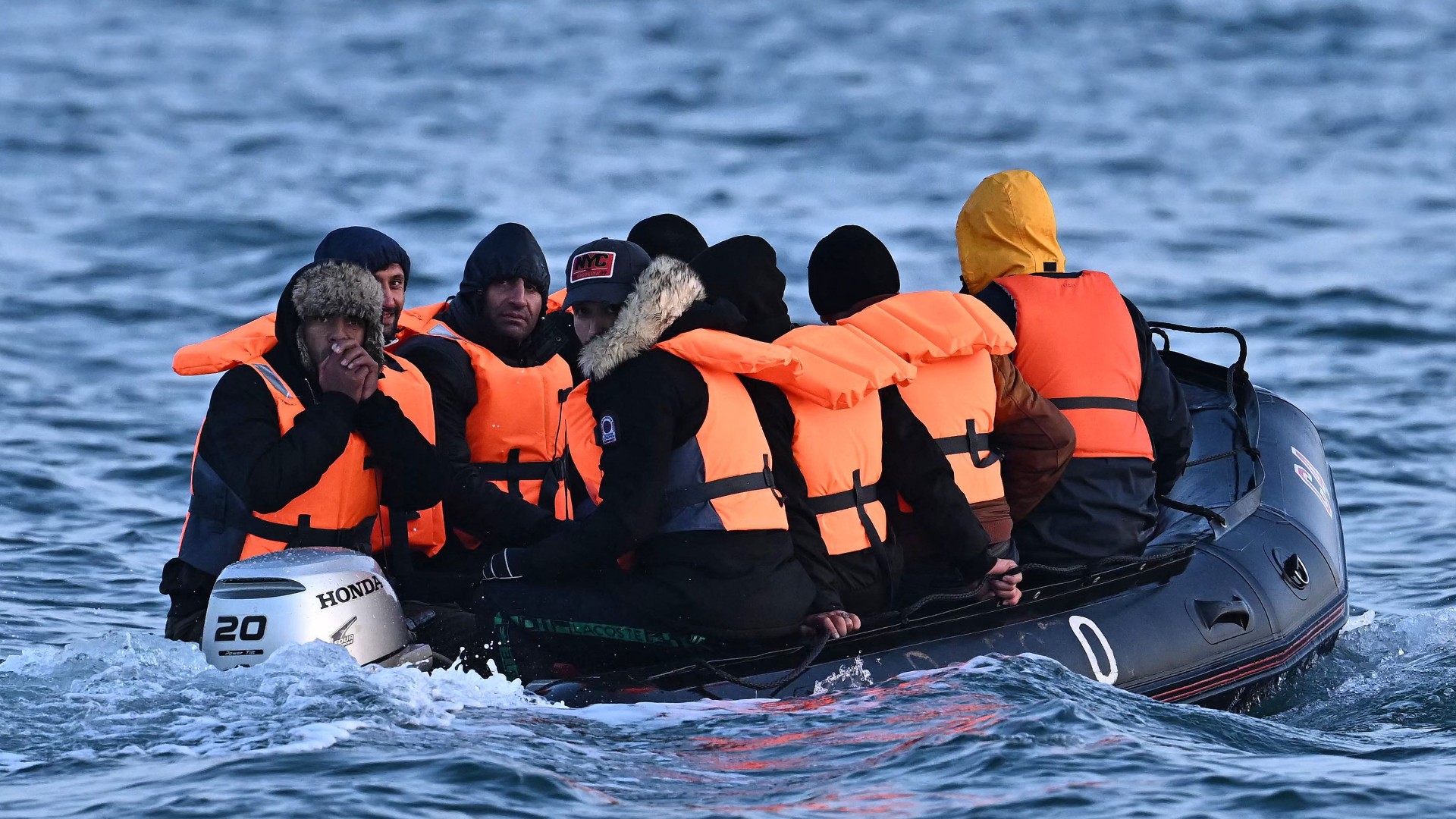'Rwanda plan is less a deterrent and more a bluff'
Opinion, comment and editorials of the day

A free daily email with the biggest news stories of the day – and the best features from TheWeek.com
You are now subscribed
Your newsletter sign-up was successful
There is only one realistic way to reduce the number of Channel deaths
Sunder Katwala in The Independent
The recent deaths of five migrants trying to cross the "icy" English Channel were "a sombre reminder" of our need for a functioning asylum system, writes Sunder Katwala, director of non-partisan think-tank British Future, for The Independent. But the row over the government's "troubled Rwanda policy" highlights how "deeply divided" our politicians are on the issue. The Rwanda bill, if passed, would remove just 1% of asylum seekers, and fails to provide alternative safe routes. It increasingly looks "less like a deterrent, than a distraction".
The Week
Escape your echo chamber. Get the facts behind the news, plus analysis from multiple perspectives.

Sign up for The Week's Free Newsletters
From our morning news briefing to a weekly Good News Newsletter, get the best of The Week delivered directly to your inbox.
From our morning news briefing to a weekly Good News Newsletter, get the best of The Week delivered directly to your inbox.
The most durable force in American politics: Trump's ties to his voters
Michael C. Bender and Katie Glueck in The New York Times
Donald's Trump's "decisive victory" in this week's Iowa caucus "revealed a new depth to the reservoir of devotion inside his party", say Michael C. Bender and Katie Glueck in The New York Times. His Republican supporters "adore" and have "rallied behind" the former president, despite the the 91 felony charges against him, and despite being offered "viable alternatives" in Ron DeSantis and Nikki Haley. Trump's connection with his supporters has "unleashed one of the most durable forces in American politics".
Look at this beautiful Japanese toilet and tell me – why is Britain so useless at public loos?
Alberte Lauridsen in The Guardian
A free daily email with the biggest news stories of the day – and the best features from TheWeek.com
Few issues are "more emblematic of the deterioration of civic infrastructure" than Britain's lack of public toilets, writes architect Alberte Lauridsen for The Guardian. The nation's "once-extensive network of civic lavatories has been abandoned, sold or turned into novelty bars". The "gaping holes in basic sanitary provision" put libraries and cafes under pressure as alternatives, and disproportionately affect people with medical conditions. By contrast, the "architecturally outstanding" new toilets in countries such as Japan and Norway put our "lamentable loos" to shame.
Is Davos still worthwhile?
Financial Times editorial board
The "globalist raison d'être" of Davos is in retreat, say the Financial Times's editorial board. As threats to world stability multiply, the annual World Economic Forum, taking place this week, risks becoming an "echo chamber". Yet the event's "true purpose" lies in its "unmatched power as a giant networking opportunity". Despite the expense and rambling scope, the appeal of a "snowy week of networking and partying" remains "undimmed". Ongoing attendance is guaranteed by "the simple fear of missing out".
-
 Quentin Deranque: a student’s death energizes the French far right
Quentin Deranque: a student’s death energizes the French far rightIN THE SPOTLIGHT Reactions to the violent killing of an ultra-conservative activist offer a glimpse at the culture wars roiling France ahead of next year’s elections.
-
 Secured vs. unsecured loans: how do they differ and which is better?
Secured vs. unsecured loans: how do they differ and which is better?the explainer They are distinguished by the level of risk and the inclusion of collateral
-
 ‘States that set ambitious climate targets are already feeling the tension’
‘States that set ambitious climate targets are already feeling the tension’Instant Opinion Opinion, comment and editorials of the day
-
 Britain’s ex-Prince Andrew arrested over Epstein ties
Britain’s ex-Prince Andrew arrested over Epstein tiesSpeed Read The younger brother of King Charles III has not yet been charged
-
 Will increasing tensions with Iran boil over into war?
Will increasing tensions with Iran boil over into war?Today’s Big Question President Donald Trump has recently been threatening the country
-
 Corruption: The spy sheikh and the president
Corruption: The spy sheikh and the presidentFeature Trump is at the center of another scandal
-
 Rubio boosts Orbán ahead of Hungary election
Rubio boosts Orbán ahead of Hungary electionSpeed Read Far-right nationalist Prime Minister Viktor Orbán is facing a tough re-election fight after many years in power
-
 Switzerland could vote to cap its population
Switzerland could vote to cap its populationUnder the Radar Swiss People’s Party proposes referendum on radical anti-immigration measure to limit residents to 10 million
-
 Greenland’s capital becomes ground zero for the country’s diplomatic straits
Greenland’s capital becomes ground zero for the country’s diplomatic straitsIN THE SPOTLIGHT A flurry of new consular activity in Nuuk shows how important Greenland has become to Europeans’ anxiety about American imperialism
-
 Epstein files topple law CEO, roil UK government
Epstein files topple law CEO, roil UK governmentSpeed Read Peter Mandelson, Britain’s former ambassador to the US, is caught up in the scandal
-
 Iran and US prepare to meet after skirmishes
Iran and US prepare to meet after skirmishesSpeed Read The incident comes amid heightened tensions in the Middle East